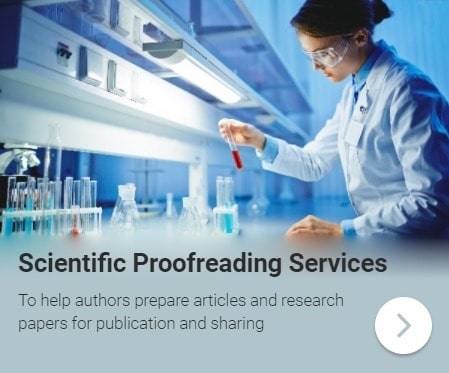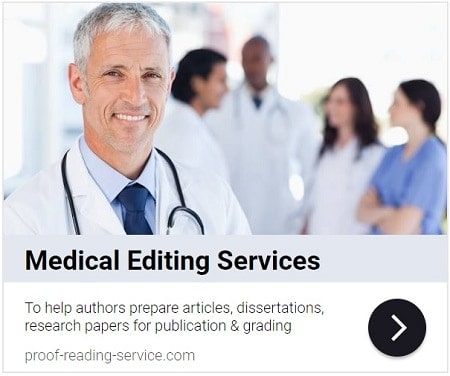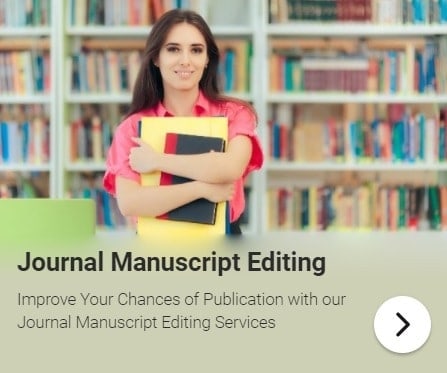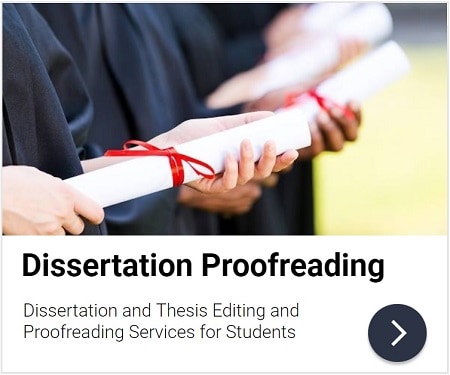Chapter 2: Progressive Writing from the Start
When it comes to writing a doctoral thesis, getting started is among the greatest hurdles. Procrastination is an issue with any large and challenging project, of course, especially when planning, motivation and deadlines are, for the most part, your own responsibility, as tends to be the case while working on a doctoral thesis. When a project is based on extensive research, the guilt that can in other situations be so helpful in encouraging action is often absent: there is, after all, always one more source to consult (something you have just discovered perhaps or something a colleague has shared or something hot off the press) and it can never be bad to read relevant sources, right? Well, the answer is rather complicated. Sources directly related to your topic and research, whether recent or not, should definitely be considered regardless of when they come to your attention. In addition, if you feel blocked while writing any particular part of the thesis, it can be helpful to look back not only to your own earlier notes on the topic, but also to relevant literature that you have read in the past, and reading a new source can obviously provide fresh ideas and inspiration. However, continuing to read or conduct primary research and, worse yet, seek out new sources and experiments when you have the material you need to begin, are running short on time and really need to knuckle down to writing can be detrimental.
Ideally, reading or gathering data by other means such as questionnaires or trials, analysing that information and reporting it in writing should be intimately intertwined during the process of producing a thesis, but there should nonetheless come a time when gathering data becomes secondary and writing is the main priority. This is a crucial transition regardless of how you approach writing your thesis and one more easily discussed and written about than achieved, but if you treat writing as an essential part of the thesis process from the very start, you will already have begun when you reach this stage and will have a good deal of material to work with as you face the transition. This chapter therefore focuses on basic aspects of writing early in the thesis process rather than on doctoral research, but for helpful advice on conducting and using research more generally, see the ‘Research and Citation’ section of the Purdue Online Writing Lab (1995–2015).
2.1 Writing to Record, Remember, Think and Reuse
2.1.1 Jotting Down and Developing Ideas
As a doctoral candidate, you have no doubt already given your thesis considerable thought. You may have begun planning it in your undergraduate days or when taking postgraduate courses or while preparing for your comprehensive examinations; or you may have developed your topic by writing a prospectus to gain funding for and/or earn acceptance into a doctoral programme. Whatever the case may be, you have ideas, probably lots of them, about what you want your thesis to be, and some of those ideas may have already made their way into writing of some sort. If so, a return to those early documents (prospectus, class essays and projects, presentation notes or whatever they may be) to glean the best of your ideas as you begin working on your thesis can be incredibly helpful. On the other hand, if you have not yet written down the ideas churning through your mind whenever you think about your thesis, there is no time like the present to begin doing so.
Some of these ideas may seem too insignificant to treat so seriously, but even the smallest ideas can develop into important parts of your argument, and anything that helps you think through a problem may also help you work through that problem in formal writing later in the thesis process. It is therefore a good idea to jot your ideas down whenever and wherever they come to you before they slip away unrecorded, remembering that no one beyond yourself need ever see these notes. This will, however, mean keeping with you at all times some method of doing so – a small journal (with a pen!), a laptop computer or tablet, a note-taking or voice memo app on your smart phone, a bundle of multicoloured cards for organising notes into topics or categories, paper serviettes in the university cafeteria or anything else that serves the purpose – which may seem slightly neurotic, but rest assured that you will be in the company of many serious authors.
When you record your ideas in this informal way, you should also try to develop them as far as possible when you jot them down. There is a marked difference between the multidirectional flow of ideas in the mind and the linear expression of them in writing, so experimenting with developing your ideas with pen in hand as they come to you will not only generate new ideas; it will also show you which ideas work well when woven into text, and help you begin the process of communicating those ideas in a more concrete and formal way. There are a great many questions you can ask yourself to inspire this kind of spontaneous development of ideas via writing if you are not accustomed to it, so a few examples may prove helpful:
- Where did this idea come from? What generated or inspired it?
- Why did this idea arise from that one? What is the link between them?
- Can I connect this idea to other ideas I have about this topic or problem? How?
- What are the implications of this idea? Are they important for my research?
- How could I connect in text the ideas that seem connected in my thoughts?
- Does this line of reasoning make sense? Is it logical? Is it persuasive?
- What was it that seemed so very important as I was falling asleep last night?
In the absence of much of your data, analyses and results, you can only take your ideas so far, but you might be surprised by just how much you can accomplish with this approach (I have developed the basic structure of entire chapters and books in short brainstorming sessions of this kind). Also, the text you produce in this way does not necessarily arise from reading sources, conducting interviews or chatting with your supervisor or fellow students (though it certainly can), so the ideas you generate are usually uniquely your own, and thus the very sort of original ideas on which a successful doctoral thesis should be based. Finally, since recording and developing your ideas in this kind of informal writing should ideally continue throughout the thesis process, you can return to your first skeletal ideas to flesh them out (and ultimately incorporate them into your thesis) as your evidence and ideas grow.
2.1.2 Taking Accurate, Critical and Reflective Notes while Reading Sources
Taking notes can be an incredibly useful activity when reading sources as part of the research for your thesis, whether those sources are primary or secondary, print or digital. Taking notes while reading serves several purposes and should be somewhat more organised than the brainstorming you record when working through your own ideas, though those ideas play a role here too. First and foremost, you must make sure that you accurately and thoroughly record the bibliographical information for the source you are reading. Section 7.3 outlines exactly what is needed (such as author and editor names, titles of books, journals, articles, chapters and web sites, as well as volume, issue and page numbers, and publication dates) for complete references to different kinds of sources, but when in doubt, record everything that seems important. If you are dealing with a source to which you may not be able to return (a manuscript or rare printed book in a distant library, for instance), be very careful indeed that you record this information neatly and precisely and that you check your work. Be sure, also, that your notes are tidy and organised so that it is obvious to which source the material you record belongs, and that the transition in your notes from one source to another is clear. It may seem when you are reading that you will remember such striking ideas and their authors, and in some cases (the sources you rely on most, for instance) you will, but after a hundred articles on similar topics have run under your eyes, they tend to blur, so record your notes in a way that anticipates this eventuality and caters to your human memory.
Secondly, you should accurately record the information and ideas you find important and interesting in what you read. If you have continued access to the sources concerned, because you own them, for instance, or they are readily available in your university library, shorthand notes that highlight the main or most important ideas and can act as triggers to jog your memory and help you find the information again will often be sufficient. However, if you may not be able to consult the source again, photocopying or scanning the parts you will need is an excellent idea, but do keep in mind that some libraries and collections will not allow this. If you are not able to make such copies, your notes will need to be precise and record everything you think you may use.
Direct quotation or transcription can be best, though time-consuming, in such situations, and checking your work for accuracy and clarity is essential: you need to be able to read and use the material at a later date with complete confidence. Whether you have continued access to a source or not, the exact location within the source of the information you are recording should always be noted: this is usually done by writing down a page or folio number, but there may also be column numbers or the paragraphs may be numbered instead (in an online document, for example) or section numbers may be more appropriate (in an e-book without set page numbers, for instance). Recording this information accurately and thoroughly makes it much easier both to find the information again and to cite or quote it properly in your thesis.
Thirdly, your notes should be critical as well as iterative, which is to say that they should provide some assessment of the source as well as simply recording what the source contains. Your thoughts about the reliability and validity of the studies you read are certainly worth recording: an online blog, for instance, may provide information, methods and arguments as valid and reliable as an article in a scholarly journal does, but it often will not, and even the best study can present limitations or problems in methodology and argumentation that render it less useful for certain purposes. It is worth considering and noting whether a source is a primary or secondary source for particular information, remembering that it is always good practice to seek out the primary source for anything vital to your research, and that some universities and departments will insist on the use of primary sources unless those sources simply cannot be obtained (see Section 7.1 for the distinction between primary and secondary sources).
You may also want to do a search on the author of the source you are reading to see if he or she is a reputable and reliable researcher and/or an expert in the subject, and considering whether a work was peer reviewed or not (articles and books produced by most academic and scientific journals and publishers will have been) can also be helpful. If you are consulting an online source, you should be still more cautious: check for information on who created and maintains the web site and watch for issues that suggest a lack of reliability such as wild claims, abusive language (directed at other researchers, for instance) and errors of spelling, punctuation and grammar; and check also university or department regulations, as there are sometimes restrictions regarding what kind of online sources can be used in a thesis.
Your focus while engaged in taking critical notes of this kind should be your own work, so it is worth mentioning in your notes how you think a source might be used in the thesis you envision and exactly how your own ideas and methods are or might be connected to those presented in the source. Do the author’s theories, methodology, results or conclusions agree or disagree with your own or those you anticipate for your study? This sort of relationship between your sources and your own work may change somewhat during the process of researching and writing your thesis as your results accumulate and their meaning is considered, but it is always a good idea to record the nature of that relationship as it stands while you are reading any given source. You may also find yourself developing your own ideas while taking notes from sources in a way similar to what you do when jotting those ideas down by themselves.
These developments can be recorded separately, of course, but it can also be helpful to have them connected with the sources that inspired them and their growth, so they, too, can be included in your source notes. It is essential, however, that both they and any critical thoughts about the sources you read be clearly distinguished from the ideas actually found in the sources you are reading. There are several ways of doing this – using a different colour ink or brackets for your own ideas, for instance, or recording iterative notes on left-hand pages and your own ideas on right-hand pages – so whatever method is effective and easy to use consistently will serve. The main concern is that you do not want to return to a source later in the thesis process only to discover that the ideas you expected to find there were actually your own; worse yet, if you are not able to return to the source, you may misattribute your own ideas to its author when you cite or quote it in your thesis.
Why PhD Success?
To Graduate Successfully
This article is part of a book called "PhD Success" which focuses on the writing process of a phd thesis, with its aim being to provide sound practices and principles for reporting and formatting in text the methods, results and discussion of even the most innovative and unique research in ways that are clear, correct, professional and persuasive.
The assumption of the book is that the doctoral candidate reading it is both eager to write and more than capable of doing so, but nonetheless requires information and guidance on exactly what he or she should be writing and how best to approach the task. The basic components of a doctoral thesis are outlined and described, as are the elements of complete and accurate scholarly references, and detailed descriptions of writing practices are clarified through the use of numerous examples.
The basic components of a doctoral thesis are outlined and described, as are the elements of complete and accurate scholarly references, and detailed descriptions of writing practices are clarified through the use of numerous examples. PhD Success provides guidance for students familiar with English and the procedures of English universities, but it also acknowledges that many theses in the English language are now written by candidates whose first language is not English, so it carefully explains the scholarly styles, conventions and standards expected of a successful doctoral thesis in the English language.
Individual chapters of this book address reflective and critical writing early in the thesis process; working successfully with thesis supervisors and benefiting from commentary and criticism; drafting and revising effective thesis chapters and developing an academic or scientific argument; writing and formatting a thesis in clear and correct scholarly English; citing, quoting and documenting sources thoroughly and accurately; and preparing for and excelling in thesis meetings and examinations.
Completing a doctoral thesis successfully requires long and penetrating thought, intellectual rigour and creativity, original research and sound methods (whether established or innovative), precision in recording detail and a wide-ranging thoroughness, as much perseverance and mental toughness as insight and brilliance, and, no matter how many helpful writing guides are consulted, a great deal of hard work over a significant period of time. Writing a thesis can be an enjoyable as well as a challenging experience, however, and even if it is not always so, the personal and professional rewards of achieving such an enormous goal are considerable, as all doctoral candidates no doubt realise, and will last a great deal longer than any problems that may be encountered during the process.
Interested in Proofreading your PhD Thesis? Get in Touch with us
If you are interested in proofreading your PhD thesis or dissertation, please explore our expert dissertation proofreading services.


Services
PhD Dissertation Proofreading
Our PhD dissertation proofreaders specialise in improving grammar, sentence structure, citations, references, clarity, logical flow and readability.
Master’s Dissertation Proofreading
To avoid failure and its consequences, send your dissertation to our master’s dissertation proofreading service.
Dissertation Proofreading Services
Our dissertation proofreaders specialise in correcting and perfecting the language, editorial styles and references across all science fields.
Headquarters
Dissertation-Proofreading.com
Allia Future Business Centre
The Guildhall
Market Square
Cambridge
CB2 3QJ
United Kingdom
More Expert Proofreading Services
Journal Editing
Journal article editing services
PhD Thesis Editing
PhD thesis editing services














